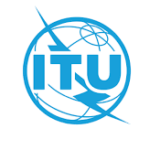Job Description
Disasters have devastating effects on people’s lives and livelihoods, and in terms of economic losses, the least developed countries (LDCs) and small island developing states (SIDS) are particularly vulnerable to the effects of climate change and natural hazards.
Information and Communication Technologies (ICTs) play an important role in increasing the resilience of countries, facilitating the flow of vital information in a timely manner before, during and after disasters strike. Information is critical for decision-making processes, as well as for rapid response during emergencies. The incredible growth in ICT networks and services, including radio, satellite, and mobile services, means that more people can be reached in a timely manner. However, the resilience of these systems needs to be considered to ensure that they survive catastrophic events.
The World Telecommunication Development Conference, which was held in Kigali in 2022 (WTDC-2022), identified disasters as a major threat to socio-economic development and revised resolution 34 (Rev. Kigali, 2022) highlighting the need to support countries in the preparation of national disaster response in the areas of regulation, policy, early warning and to develop national emergency telecommunication plans and standard operating procedures.
In March 2022, the UN launched the Early Warnings for All (EW4All) Initiative, which stipulates that every person in the world should be protected by an early warning system by 2027. The initiative’s Action Plan puts the International Telecommunication Union (ITU) in the leading role on ‘Warning Dissemination and Communication” – a critical component of early warning systems that ensures alerts reach the people at risk on time to take action.
As part of the EW4All Initiative, ITU, in close cooperation with UNDRR, WMO and IFRC, is working to support countries in enhancing their warning dissemination and communications capacities to strengthen the multi-hazard early warning system and ensure timely dissemination of actionable alerts to at-risk populations.
TERMS OF REFERENCE
Under the guidance of the Head of the Environment and Emergency Telecommunications Division, the consultant will contribute to the ITU/BDT’s work on emergency telecommunications and use of ICTs for disaster management, and will support the team in terms of the UN Early Warnings for All (EW4A) initiative.
In particular, the consultant will:
- Support BDT’s work on leading the warning dissemination and communication pillar of the UN Early Warning Initiative(EW4All), which stipulates that by 2027 every person in the world is covered by an Early Warning system: work with governments and regional partners to coordinate technical assistance; identify a group of experts to deliver technical assistance in countries; support the coordination of country workshops and programs with the EW4All inter-pillar group, regional offices, country counterparts and implementation partners; undertake research and help with the compilation of public warning systems, regulations, and platforms, that support disaster management, including the use of the common alerting protocol (CAP), cell broadcast (CB), satellite direct-to-handset(DTH) and different technologies and networks.
- Support the EW4All communication and fundraising efforts by working with the BDT communication and resource mobilization team to provide content on the initiative.
- Provide support to the AI sub-group of the EW4All initiative by organizing meetings and events and liaising with stakeholders.
- Provide analytical support to BDT’s work on the Disaster Connectivity Map (DCM) by undertaking research on new data sources for measuring connectivity gaps and helping with the coordination of the Emergency Telecommunications Cluster (ETC) and the Global System for Mobile Communications (GSMA), among other partners.
- Support the preparation and organization of meetings and seminars; prepare documents and liaise with speakers and experts.
CONCRETE DELIVERABLES
- The consultant will contribute to the ITU/BDT’s work on emergency telecommunications and use of ICTs for disaster management, and in particular support the team in terms of the UN Early Warnings for All (EW4A) initiative.
COMPETENCIES
- Experience working directly with stakeholders from local and national government or at the international level and in the area of emergency telecommunications. Technical experience in the disaster risk reduction would be an advantage.
QUALIFICATIONS REQUIRED
Education: University degree in a branch of international relations, development studies, engineering, business management or international policy.
Experience: At least two (2) years of progressively responsible experience in the areas of emergency telecommunications, disaster risk reduction and management, early warning systems, working directly with countries to implement projects of this nature. Higher university degree in a related field can be considered as a substitute for one year of working experience.
Languages: Knowledge of English at advanced level. Knowledge of a second official language of the Union would be an advantage.



